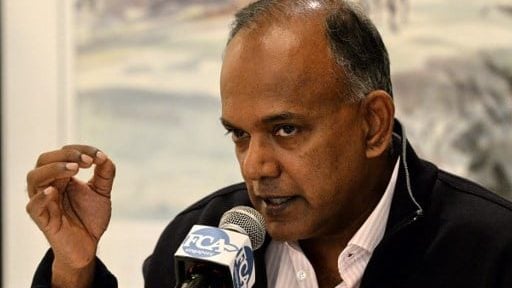In the event of a terrorist attack, special powers for the police can be mobilised and set in motion allowing the police force to exert greater control over communications and possibly issue a communications blackout, the Ministry of Home Affairs (MHA) said.
The statement made by Minister for Home Affairs K Shanmugam was in response to a question posed MP Christopher de Souza in Parliament (Sep 3), on the available legal tools deterring the filming or photographing of police officers attending to a security threat.
“Communications Blackout”
These special powers are known as the the Public Order and Safety (Special Powers) Act (POSSPA), which give the Commissioner of Police the means to issue a Communications Stop Order (CSO).
Under a CSO, the taking or sharing of films, pictures, texts, or audio messages of an entire declared incident area is effectively banned. The ban applies to everybody, instead of a specific individual.
Should a person be found to be in breach of the CSO, he or she is liable to two years’ imprisonment, a fine of up to S$20,000, or both.
Such special powers are not available in everyday operations and need to be activated by the minister before they can be used, Mr Shanmugam added.
Public Order and Safety Act
Last year, the Public Order and Safety (Special Powers) Act (POSSPA), was passed in Parliament on March 21 and became effective May 16.
Under POSSPA, the police are allowed to use special powers in handling serious incidents, including terrorist attacks.
MHA explained that there is a “two-tier unlocking mechanism” for POSSPA, and that the threshold is high. In order for POSSPA to be activated, the Minister for Home Affairs must first authorise the use of the powers in the Act. Subsequently, each special power under POSSPA has to be unlocked by the Commissioner of Police only as and when he assesses that the situation requires it, MHA said.
“Indeed, Singapore continues to face a clear and present terrorism threat, posed by home-grown radicalised individuals and foreign terrorists who view Singapore as a prized target,” MHA added.
“POSSPA is part of these continuing efforts to combat terrorism. Attacks around the world have shown that terrorists are continuously evolving their methods to inflict maximum casualties and deaths. It is therefore important to equip the police with powers to be able to respond swiftly and effectively to attacks of any scale and of varying tactics, and minimise the chances that their security operations are compromised,” it said. -/TISG

